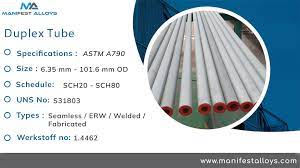How Do Indian Stainless Steel Forged Fittings Manufacturers Ensure Quality and Compliance?

Stainless steel forged fittings play a crucial role in various industries due to their corrosion resistance and durability. In India, the manufacturing of stainless steel forged fittings is a significant industry. This article explores how Indian Stainless Steel Forged Fittings Manufacturers In India ensure the quality and compliance of their products, focusing on five key aspects.
-
Adherence to Quality Standards: Indian stainless steel forged fittings manufacturers adhere to strict quality standards to ensure the products meet international specifications. They often comply with globally recognized standards like ASTM (American Society for Testing and Materials) and ASME (American Society of Mechanical Engineers). Adherence to these standards ensures the quality, strength, and durability of the forged fittings.

-
Material Selection and Alloy Steel Round Bars: The selection of appropriate materials is critical for the quality of stainless steel forged fittings. Manufacturers in India carefully choose the stainless steel grades and alloy steel round bar based on the specific requirements of the intended application. The right choice of materials ensures the fittings’ resistance to corrosion, temperature, and pressure, which are essential factors for their performance and longevity.
-
Precision in Forging Process: Indian manufacturers emphasize precision in the forging process. Forging is a crucial step where the raw material is shaped into the desired form and size. Precision forging techniques are employed to ensure consistency and accuracy in the dimensions and geometry of the forged fittings. This precision is vital to meet the required specifications and to guarantee the fittings’ performance under various operating conditions.
-
Stringent Quality Control Measures: Indian stainless steel forged fittings manufacturers implement stringent quality control measures at every stage of production. This includes rigorous testing of raw materials, monitoring the forging process, and conducting inspections post-forging. Quality control checks involve non-destructive testing methods such as ultrasonic testing, dye penetrant testing, and magnetic particle testing to detect any defects or inconsistencies.

-
Compliance with Regulatory and Industry Standards: Compliance with regulatory and industry standards is a priority for Indian stainless steel forged fittings manufacturers. They adhere to guidelines set by regulatory bodies like the Bureau of Indian Standards (BIS) and industry associations such as the Stainless Steel Development Association (SSDA). This compliance ensures that the manufactured products meet the safety, quality, and performance expectations set by the industry and its stakeholders.
Conclusion: Indian stainless steel forged fittings manufacturers uphold high standards of quality and compliance to produce reliable and durable products. Through strict adherence to material selection, precision forging, and comprehensive quality control measures, they ensure that their stainless steel forged fittings meet international standards and satisfy the needs of various industrial applications. This commitment to quality plays a significant role in bolstering the reputation of Indian manufacturers in the global market.



